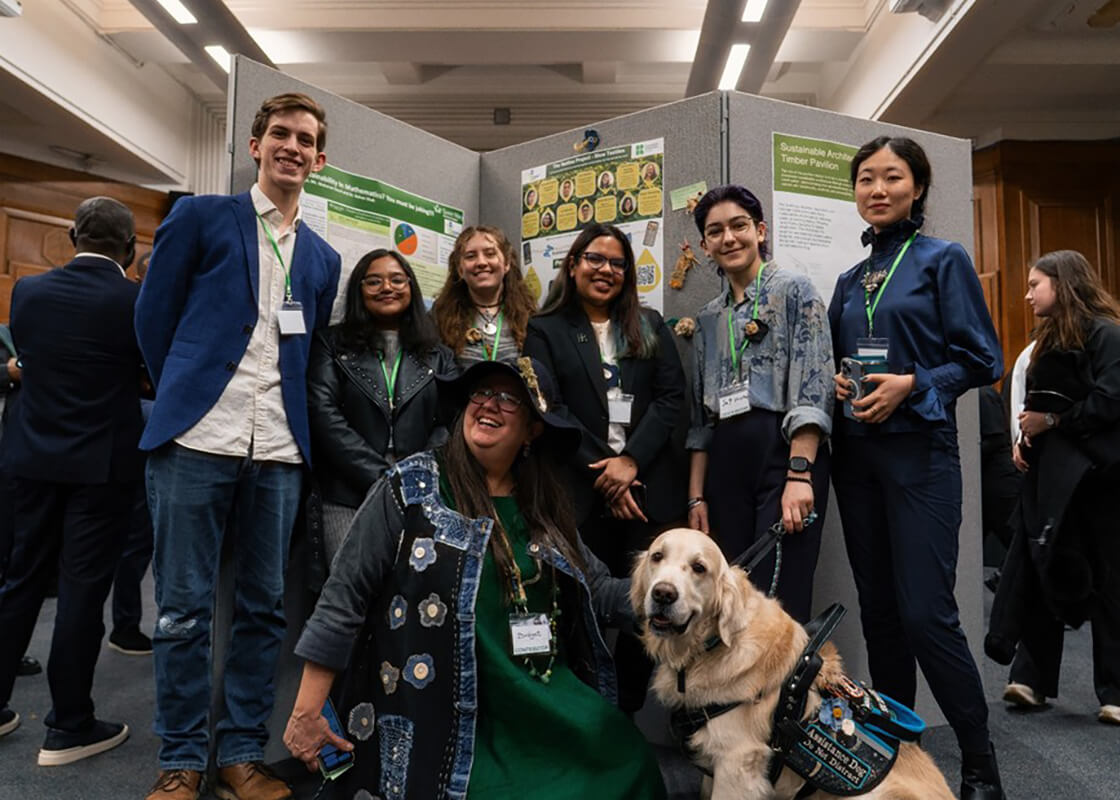Our Commitment
Sustainability is embedded into our academic vision through the Supporting Achievement, Innovation and Learning (SAIL) framework, one of the five pillars underpinning curriculum development at Roehampton. Sustainability must now be embedded, taught and assessed at programme level as part of our curriculum design. This approach was a theme at the 2-day academic summit in January 2025 and a keynote topic for the June 2025 Academic Summit, with academic development led by the Learning and Teaching Enhancement Unit (LTEU). The approach is also part of the University of Roehampton's early career academic training programme.
Earth in Crisis: Interdisciplinary Approaches

Offered as an optional module across several programmes, Earth in Crisis: Interdisciplinary Approaches gives students the opportunity to explore environmental challenges from multiple academic perspectives. By drawing on insights from science, law, economics, philosophy and literature, the module fosters a deep understanding of the interconnected nature of today's global ecological crises.
With a focus on key issues such as biodiversity loss, climate change, and water security, students gain critical awareness of the complexity of sustainability problems – and the diverse tools and strategies needed to address them. The module not only strengthens subject knowledge, but also equips students with complex, transferable skills applicable far beyond the classroom.
This was the first truly interdisciplinary module developed at the University, designed to reflect the multifaceted nature of sustainability itself. As such, it plays a central role in our efforts to embed sustainability across the curriculum.
At our recent University Research Festival, Dr Gabor Sarlos presented Embedding Sustainability into Business Education: An Interdisciplinary Approach, using Earth in Crisis as a case study. His research highlights the need for holistic, cross-disciplinary education to prepare students for the challenges of a rapidly changing world. As Dr Sarlos notes, "sustainability challenges are inherently complex and require responses that transcend traditional academic boundaries."
"Earth in Crisis demonstrates how interdisciplinary teaching can help students develop the knowledge and mindset needed to tackle sustainability issues with both critical thinking and creativity."
– Dr Gabor Sarlos, Research Festival 2025
Academics and students across Roehampton contribute to sustainability-focused research and initiatives. Their work helps drive progress on environmental and social challenges through innovative, interdisciplinary approaches:
- The Roehampton Climate Network connects researchers, staff and students working on climate and sustainability challenges. Learn more: Roehampton Climate Network.
- The Connected Waters Doctoral Training Programme supports interdisciplinary water-focused research with sustainability at its core. Find out more: Connected Waters.
fostering sustainability
through craft and conversation
"To learn a thing in life and through doing is much more developing, cultivating and strengthening than to learn it merely through the verbal communication of ideas"
– Friedrich Froebel (1782-1852).
The educational philosophy of Froebel, the founder of kindergartens, is at the core of the "Slow Workshops". Open to all, they are student-led forums to promote interdisciplinary cooperation in sustainability. They offer a 'bottom-up', micro developmental craft-based model of whole-earth care. For example, one of our longest running Slow Workshops is "Slow Nettles - fast fashion".

They were started to honour the memory of a law professor of the University of Roehampton, who planned to introduce her students to the ancient Japanese craft of making textiles from nettle, in order to critique the tremendous environmental harms of fast fashion and advocate for Fair Trade labelling on all clothing. Implementing the ethos of Molly Scott Cato's paper 'What the willow teaches, sustainability learning as craft' (2014), these workshops take students from different academic disciplines and stages of study on interdisciplinary journeys around the theme of sustainability.
Each of the series of 4 to 6 session focuses on the use of a renewable natural resource found on campus. Over the last three years, they have been themed around "Slow Nettles vs fast fashion", "Slow Ink vs single use stationery", and "Slow Buttons vs microplastics". Three more workshop series are currently in their design stage. This praxis of craft, within a liminal eco-diverse space, promotes mindfulness. It is also a radical act of protest, a critique of unsustainable practices. Slow Workshops allow participants to slow down, take stock, and brainstorm their development into active advocates of climate protection.
This approach, which has yielded significant student 'buy-in', is for them an opportunity to enrich their academic work and develop their organisation and leadership skills: all the Slow Workshops are student-led. Alumni of the workshops have gone on to become more active in the life of the University and its communities.
Slow Workshops offer iterative, embedded, creative sustainability networking and collaboration. This embodied learning, akin to apprenticeship, champions academic curiosity, as participants reimagine social and environmental action, and the process of helpful change. The workshops are specifically designed to fit within students' academic studies and focus on concrete UN Sustainability Development goals.
